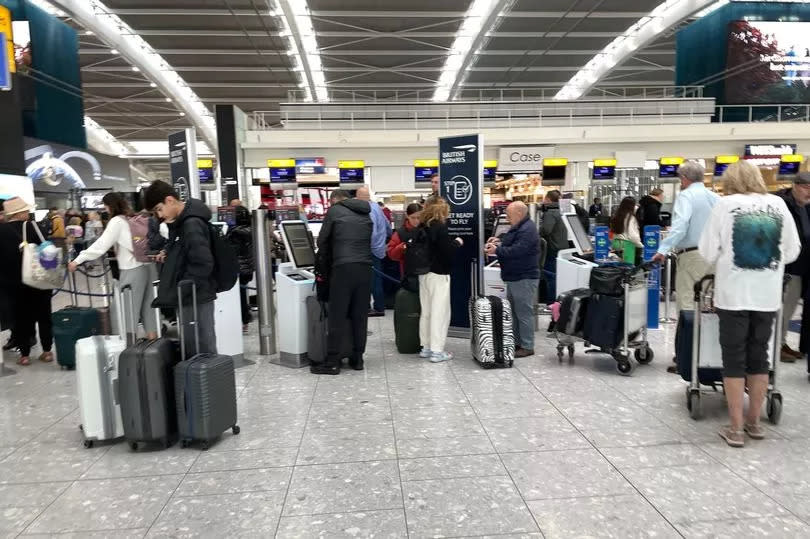Three UK airports now have laptop and liquid restrictions lifted

A third UK airport has removed the need for restrictions on liquids in hand luggage meaning travellers no longer have to keep the items to 100ml and put them in clear plastic bags. New scanners are being introduced across the UK - but the government has been left frustrated after airports missed deadlines to have them in action for this summer.
Now people using Aberdeen International Airport no longer need to remove laptops or liquids when passing through security. It joins Teesside, and London City, where queue times have been cut by 50% after the scanners came in removing the need for manual bag checking.
The installation of the Next Generation Security Checkpoint (NGSC) Scanners, means that the previous 100ml liquid rule is no longer in force with departing passengers able to carry bottles containing up to two litres in their hand luggage.
Electrical items like laptops will also be able to remain in carry-on bags when they pass through the new 3D scanners. Earlier this month it emerged that the planned nationwide relaxation of rules around airline passengers carrying liquids in hand luggage has been delayed by a year.
The Government announced it has granted extensions to several large UK airports unable to meet its June 1 deadline to fully install new scanning technology. At airports which have not put them in place, the limit remains 100ml and containers must be put in clear plastic bags.
A deadline of December 2022 for most major airports to deploy new scanners was initially set in August 2019 by then-prime minister Boris Johnson. After the aviation industry suffered huge disruption due to coronavirus travel restrictions, in December 2022, Transport Secretary Mark Harper set a new date of June 1 2024.
Ministers have issued extensions of up to 12 months to several airports on a case-by-case basis, which is expected to be enough time for them all to complete the work. The Government is also exploring how financial penalties could be imposed for further non-compliance.
The Department for Transport refused to provide a breakdown of the situation for each airport, citing security concerns. Mr Harper said: “These cutting-edge scanners will make air travel safer and easier for passengers by strengthening security even further.
“The UK is leading the world with its rollout of this technology, but it’s important we give those airports yet to meet the deadline a second chance to get the job done. Until they do, passengers should continue to check before travelling.”
Heathrow has previously said it expects to have new scanners in all security lanes this summer, while Gatwick expects to complete the programme by the end of March next year. Manchester Airports Group, which runs Manchester, East Midlands and Stansted airports, said its scanners will be fully rolled out in 2025.
London City became the UK’s first major airport to begin using the new scanners for all passengers in April last year. Airport security restrictions for liquids were introduced in 2006 following a foiled terror plot to blow up planes flying from London to the US with homemade liquid bombs.
Aberdeen Airport Security Manager William Wallace said: “We are delighted to have the NGSC scanners operational at Aberdeen. We are well ahead of the deadline set by the Government thanks to all the hard work from our staff and contractors.
“This is one of the biggest changes in airport security so we would ask passengers to be prepared for this new process and to have patience as we enter the biggest change in aviation security in nearly two decades.” Passengers are reminded that different rules may apply at other UK airports.
“It is important to check what the process is at both your departing airport and any other airports you will travel through or from before you set off, as this may be different,” added Aberdeen.

 Yahoo News
Yahoo News 
